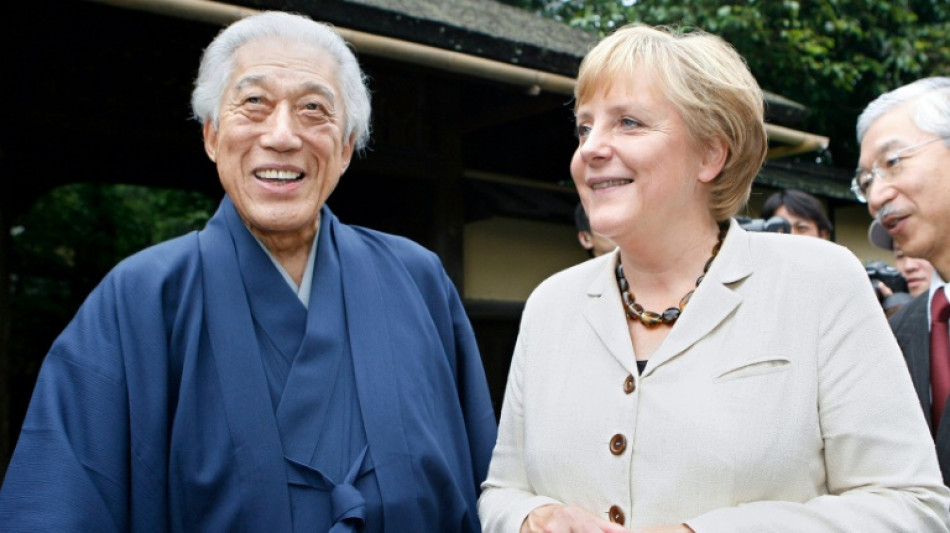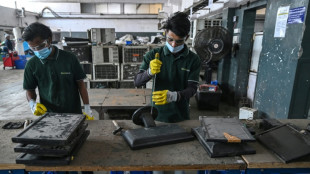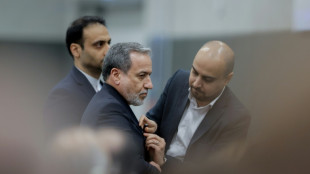
Japan's grand tea master Sen Genshitsu dies at 102: reports

Sen Genshitsu, a would-be kamikaze pilot who became a Japanese tea ceremony master preparing cups of matcha for world leaders and monarchs, died aged 102 on Thursday, reports said.
With a motto of "peacefulness through a bowl of tea", Kyoto-born Sen used ancient "Urasenke" tea tradition rituals to spotlight his anti-war messages.
The United Nations headquarters in New York and the USS Arizona Memorial in Pearl Harbour, Hawaii -- the scene of a devastating Japanese attack that brought the US into World War II -- were among the locations for his ceremonies.
His death was reported by major Japanese media, including the national broadcaster NHK and the top-selling newspaper Yomiuri Shimbun.
AFP could not immediately reach the Urasenke school for comment.
Born in 1923, Sen went through training as a young man to become a kamikaze pilot in World War II, but the fighting ended before he had to carry out a suicidal mission.
He later told how he used to serve tea to his fellow soldiers during military training.
In a 2023 interview with NHK, Sen stressed the calming effects of tea culture.
"A bowl of tea makes spirits very peaceful. When everyone is peaceful, there will be no war," he said.
An ordained Zen monk, Sen became the 15th-generation grand master of the Urasenke school in 1964 following the death of his father who had previously headed the tradition.
He offered tea to monarchs and presidents including Britain's Queen Elizabeth II and Soviet leader Mikhail Gorbachev, and counted the former US secretary of state Henry Kissinger and former Chinese president Hu Jintao as friends.
He said that his wartime experience had helped shape his views on the importance of peace.
In 1997, he received the Order of Culture in Japan and in 2020, he was given the Legion of Honour, France's most prestigious order of merit.
He retired in 2002 as the head of the tea school, passing it to his son, but he remained active up until his death.
Even after he turned 102 in April, he held more than 100 cultural and government advisory positions and gave speeches, including some lasting more than an hour, the Yomiuri Shimbun said.
He also worked as a goodwill ambassador for the UN cultural and education agency, UNESCO.
He was known as "Flying Grand Master" for his busy travel schedules.
T.Barbieri--INP

 London
London

 Manchester
Manchester
 Glasgow
Glasgow
 Dublin
Dublin
 Belfast
Belfast
 Washington
Washington
 Denver
Denver
 Atlanta
Atlanta
 Dallas
Dallas
 Houston Texas
Houston Texas
 New Orleans
New Orleans
 El Paso
El Paso
 Phoenix
Phoenix
 Los Angeles
Los Angeles



